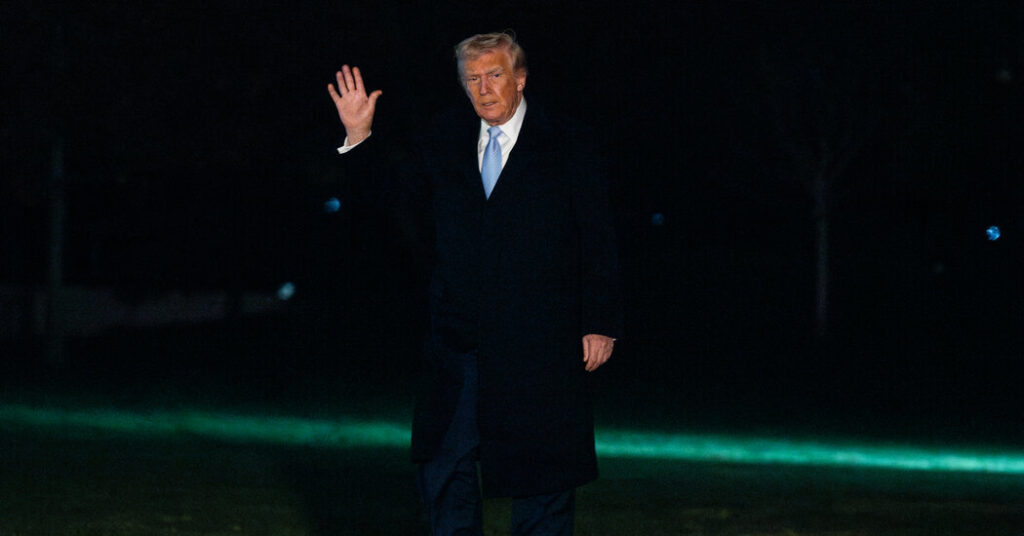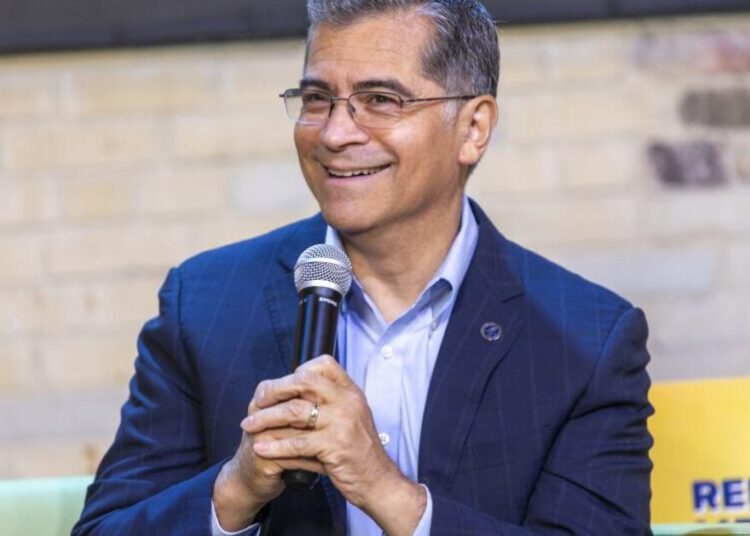The Trump administration intensified its pressure campaign against Venezuela on Sunday by placing an aircraft carrier in the Caribbean, announcing that it would designate a Venezuelan group as a foreign terrorist organization and saying that it had struck another boat that it said was trafficking drugs.
But President Trump also left open the possibility of negotiations, telling reporters that the United States “may be having some discussions” with President Nicolás Maduro of Venezuela.
“We may be having some discussions with Maduro, and we’ll see how that turns out,” Mr. Trump said, speaking at an airport in West Palm Beach, Fla. He added that Venezuela “would like to talk” but would not elaborate on what he meant.
“What does it mean? You tell me, I don’t know,” Mr. Trump said. When a reporter asked if he was interested in negotiations, he shrugged. “I talk to anybody,” he said. “I talk to you.”
The Trump administration has been building up its military presence in the Caribbean and reviewing options for potential strikes inside Venezuela, even as Mr. Trump’s aides provide conflicting accounts of what they are seeking to achieve.
It has also launched 21 known strikes on boats it claimed were trafficking narcotics in the waters off Central and South America, killing at least 83 people since September in a campaign that many legal experts say violates international law.
The Trump administration has said the campaign is about stopping the flow of drugs in the region, but has yet to provide evidence that any of these boats were moving drugs. And the discussion by Mr. Trump and his top aides has focused on removing Mr. Maduro from office. The United States and its allies do not recognize Mr. Maduro as the legitimate leader of Venezuela after last year’s election.
On Sunday, the U.S. Navy announced that the U.S.S. Gerald R. Ford, the country’s largest and most advanced aircraft carrier, had arrived in the Caribbean with its accompanying warships and attack planes. Defense Secretary Pete Hegseth had ordered its deployment to the region last month. Mr. Maduro has placed Venezuela’s military on high alert.
The carrier’s arrival adds to the U.S. military’s ability to conduct boat strikes or potential attacks on Venezuelan soil. The American force in the region has now reached 15,000 soldiers and sailors, the largest in decades.
Later on Sunday, the U.S. military announced the details of its latest strike in the eastern Pacific of a boat the Trump administration said was smuggling drugs by sea. The strike on Saturday killed three people.
In a social media post on Sunday, the U.S. Southern Command said that the boat was being operated by a “designated terrorist organization” and was trafficking narcotics in the eastern Pacific. It did not provide evidence for those claims. The post included a video that showed a boat being struck.
In another move to escalate the pressure campaign against Mr. Maduro, Secretary of State Marco Rubio on Sunday announced that the State Department would designate a Venezuelan group, Cartel de Los Soles, as a foreign terrorist organization. The designation restricts financial transactions of the group or anyone associated with it.
Mr. Rubio said the group is “headed” by Mr. Maduro and high-ranking individuals in his government. A federal indictment from 2020 accuses Maduro of drug trafficking charges related to the group. He has denied the charges.
Yan Zhuang is a Times reporter in Seoul who covers breaking news.
The post Trump Administration Escalates Pressure on Venezuela appeared first on New York Times.




